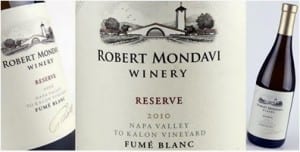Branding Strategies in Agricultural Commodities: Vineyard & Block Designates
By Katja Loeffelholz, Dickenson, Peatman & Fogarty
The prominence of vineyard-designated wines is another lesson in value-added agricultural branding which presents both the winery and the vineyard owner or lessee with a number of marketing and legal issues. Recognizing the value of vineyard designated names, vineyards have long been designating blocks within their vineyards with proprietary names.
In this way, even though multiple wineries are purchasing grapes from the same vineyard property, each winery can have a distinct name to refer to the vineyard block where the grapes were grown, also known as the “block designate.” If a vineyard owner sells wine grapes to a winery under a vineyard designate or block designate, the winery may use that vineyard or block name on wine produced from those grapes to designate origin so long as such use complies with the vineyard designation labeling requirements of the Alcohol and Tobacco Tax and Trade Bureau (TTB). Accordingly, the vineyard owner — not the winery – theoretically owns rights in the name.
Wineries may consequently find their vineyard-designated wines embroiled in a trademark dispute between different winery owners. One of the most well-publicized vineyard name trademark disputes involved the famed To Kalon Vineyard. Originally planted in 1868, To Kalon was eventually divided up and by the 1990s, both the Robert Mondavi Winery and Andy Beckstoffer owned portions of the vineyard. Mondavi secured federal trademark registrations for both the TO KALON and TO KALON VINEYARD marks. Schrader Cellars had entered into an agreement to purchase grapes from Beckstoffer, and Schrader planned to use the “Beckstoffer Original To Kalon Vineyard” designation on its wine label. In 2002, Mondavi sued Schrader Cellars, and sought an injunction to bar Schrader’s sale of “To Kalon Vineyard” designated wine. The parties eventually settled their dispute, and Beckstoffer was granted a royalty free license to continue to use the To Kalon name.
Thus, when the vineyard is owned by another party, the risk to the winery in marketing vineyard and block designated wines made from contract grapes is that once the contract ends, so can the rights to continue use of the vineyard and/or block designation. A winery must accept that by producing and marketing vineyard-designated wine made from grapes grown in a vineyard that the winery does not own, the winery is potentially spending time and money building brand equity for someone else. When the grape contract ends, there is considerable risk that the “brand” of the vineyard owner may be used by the vineyard owner itself, or potentially by other wineries that contract with the vineyard owner.
Wineries are often unaware that the vineyard designation or block designation actually belongs to the vineyard owner. Many wineries feel that if they are using the vineyard designation on wine and popularizing the vineyard name, they should own the rights in the vineyard or block designate as a trademark. While this may be a questionable legal position, this attitude among some wineries may nevertheless be problematic from a practical perspective. Should a winery successfully register rights in a mark which is used as a vineyard or block designate, the vineyard owner will need to spend considerable time and money in a potentially unsuccessful effort to regain clear rights in the name. The best way a vineyard owner can protect itself is to register its brands and properly license them to a winery.
To maintain trademark rights, an owner must control the quality of goods sold under the mark. For a vineyard owner, this can be accomplished through specific provisions in a grape contract or through a related trademark license agreement which is separate from the grape contract. A license will clearly establish that, as between the vineyard and the winery, the vineyard is the owner of the mark and that the winery (and its use of the designate) is subject to the terms of the license, as well as, the vineyard owner’s control of the quality of wine provided under the mark. In practice, such quality control can often be administered in a non-disruptive, nonintrusive manner (e.g., sufficient quality may be presumed based on maintenance of quality heretofore maintained by the winery operation).
The strategy of enhancing the value of grapes by naming the grapes from a certain vineyard is also widely used to enhance the value of other agricultural commodities, such as cattle from a certain ranch, or spinach from a particular farm. As the commodity producer, it is important to register the trademarks for the brands used with these agricultural products so that the commodities themselves (as well as the land from which they come) can accrue value, prestige and reputation which inures to the brand assets.
Are you adequately protecting your vineyard designate or agricultural commodity?
For inquiries, please contact Katja Loeffelholz, a registered attorney with the United States Patent and Trademark Office and Of Counsel to Dickenson, Peatman & Fogarty at [email protected].
New Legislation to Help California Grapegrowers Collect
To be a winegrape buyer you have to get a processors license from the California Department of Food and Agriculture’s market Enforcement Branch (the “MEB”). When a buyer doesn’t pay for the grapes though, the seller can resort to a lawsuit or the seller can file a complaint with the MEB under the Processors Law. (
For further information on business law matters, including grape purchase contracts, contact Scott Greenwood-Meinert at [email protected].


